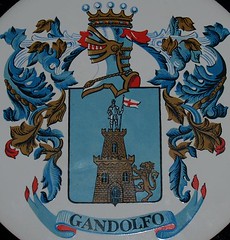RE: Fox News.com Feb 2007 - Ron Paul, the Real Republican?
From: Erin
Date: May 18, 2007 9:00 AM
Ron Paul, the Real Republican?
Tuesday , February 20, 2007
By Radley Balko
Paul isn't a reflexive contrarian--he doesn't oppose just to oppose. Rather, he has a core set of principles that guide him. They happen to be the same principles envisioned by the framers of the U.S. Constitution: limited government, federalism, free trade and commerce -- with a premium on peace.
When most members of Congress see a bill for the first time, they immediately judge the bill on its merits, or if you're more cynical, they determine what the political interests that support them will think of it, or how it might benefit their constituents.
For Paul, the vast majority of bills don't get that far. He first asks, "Does the Constitution authorize Congress to pass this law?" Most of the time, the answer to that question is "no." And so Paul votes accordingly.
This hasn't won him many friends in Congress, or, for that matter, his own party. It hasn't won him influential committee assignments or powerful chairmanships, either. Those are generally handed out to the party animals who vote as they're told. An incorruptible man of principle in a corrupt body almost utterly devoid of principle, Paul is often a caucus of one.
Paul recently announced his intentions to run for president in 2008. For the few of us who still care about limited government, individual rights, and a sensible foreign policy, Paul's candidacy is terrific news. Not because he's likely to win. He's a not-terribly-powerful Congressman who's a pariah in his own party – which also happens to be the minority party. Not the ideal presidential dossier.
Paul has already run for president once, on the Libertarian Party ticket. He returned to Congress as a Republican in 1996, even though the party machinery opposed him in the primary. He has since won re-election with progressively larger margins of victory, bucking the conventional wisdom about the political value of pork barrel spending and district patronage. Paul, for example, refuses to support federal farm subsidies, despite the fact that much of his district relies on agriculture. His constituents re-elect him anyway.
Paul's presence in the race is important because he'll put issues on the table that would otherwise be completely ignored. His presence in the primary debates alone will make them far more substantive and interesting than they've been in a generation. One example is the continuing disaster that is the drug war, which Paul rightly believes to be both immoral and unconstitutional. Paul also opposed the war in Iraq from its inception. Those two issues alone will differentiate him from every other candidate on the stage.
But Paul can then swing to the right of every other candidate on federal spending, regulation, the Nanny State, and the growth of government. On these issues, he can reliably and credibly serve as the party's conscience, and browbeat the sitting senators and congressmen running for president for their votes issues like the prescription drug benefit, the surge in federal spending, and the party's complicity in the corrupt earmarking process.
I don't agree with Paul on everything. His stance on monetary policy (he wants to return to the gold standard) is a bit out-there for my taste. He favors strict limits on legal immigration, and is far more alarmist about illegal immigration than I think is necessary.
Of course, the immigration issue will likely be a benefit, not a liability, to Paul in the primaries. He's also a registered OB/GYN who has delivered more than 4,000 babies – and is anti-abortion.
While Paul probably can't win the GOP nomination, there's a chance he can survive deep enough into the primaries to foster a national debate on issues like drug prohibition, as well as force the Republican Party to do some soul-searching, and perhaps reconnect with its limited government, Barry Goldwater roots.
Ideally, Paul's bona fides on immigration, abortion, federalism, constitutionalism, and limited government will win him credibility with and respect from primary voters, giving him leverage to take principled stands and spur discussion on issues like the drug war, privacy, foreign policy, and civil liberties. He could at least win enough votes and support to last well into the spring, forcing the other candidates to adopt parts of his agenda, and the press to cover his platform.
Under the less optimistic scenario, Republican Party leaders, primary opponents, and the punditocracy punish Paul for his principles, and demagogue his position on Iraq, the drug war, and federal meddling in our personal lives. Talk radio, conservative leaders, and the party machinery dismiss him as an unserious candidate, and primary voters take their cue. Under this scenario, Paul bows out early, the remaining candidates press on with business as usual, and the Republican Party continues down its unfortunate recent trajectory.
Which scenario plays out probably depends on how much primary voters actually care about the GOP's recent embrace of big government. That is, which is more important to core Republican voters: Limited government, or using big government to promote a conservative agenda?
Ronald Reagan once said that libertarianism is "the very heart and soul of conservatism" (Reagan was great at communicating the princples of limited government, if less great at actually implementing them). Of all the candidates so far declared, only Paul can credibly lay claim to the legacy of the Reagan-Goldwater revolution. How well he does, how long he lasts, and who ends up defeating him will reveal whether there's any limited government allegiance at all still stirring the Republican Party.
Radley Balko is a senior editor with Reason magazine. He publishes the weblog, TheAgitator.com.
http://www.foxnews.com/story/0,2933,252847,00.htmlLabels: btvol, gandolfo, The Truth Is Out There



0 Comments:
Post a Comment
<< Home